Are you navigating the frustrating waters of getting reimbursed for towing services? We understand how inconvenient it can be when unexpected costs arise, especially for something as essential as roadside assistance. In this article, we'll guide you through the process of writing a persuasive letter to ensure you get the reimbursement you deserve. So, buckle up and read on to discover helpful tips and a template to make your letter stand out!
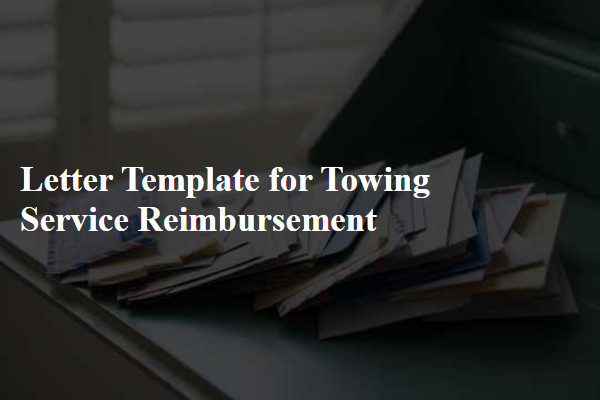
Recipient Details and Contact Information
The towing service reimbursement process requires specific recipient details, such as name, address, and contact number. Proper identification is crucial for accountability and communication. The name should be the exact legal name of the individual or business filing for reimbursement, ensuring that all documentation aligns for verification purposes. The address must be complete and accurate, including street number, street name, city, state, and zip code, providing a clear point of contact for any correspondence. A reliable contact number, ideally a mobile phone, allows for swift communication regarding the status of the reimbursement request. Additional notes might include an email address for electronic updates and relevant case or reference numbers to streamline the process.
Description of Incident and Towing Service Details
The incident involving the vehicle occurred on Main Street, downtown Springfield, on October 15, 2023, at approximately 2:30 PM. A sudden breakdown due to engine failure rendered the car inoperable, necessitating immediate towing assistance. The towing service, Springfield Towing Co., dispatched a qualified technician within 20 minutes, arriving on-site to assess the situation. The vehicle was safely loaded onto a flatbed truck and transported to the local repair shop, Smith's Auto Repair, located at 123 Elm Street. The total towing mileage covered was 5 miles, resulting in a service fee of $75. Documentation includes the receipt from Springfield Towing Co. and a signed authorization form for the towing service provided.
Reimbursement Request Statement and Amount
Towing services are essential for vehicle recovery and assistance, especially in emergencies. A towing service incident can involve various charges, such as mileage fees (often ranging from $2 to $5 per mile), labor fees, and storage costs, which may accrue daily (averaging $20 to $50 per day) if the vehicle remains in the towing lot. It is crucial for vehicle owners to maintain detailed records of the towing incident, including receipts and documentation from the towing company, to substantiate any reimbursement claim from insurance providers or third parties. Insurance companies typically require a clear articulation of the reimbursement request, including itemized expenses and the specific circumstances leading to the towing, such as breakdowns or accidents, to facilitate the assessment and processing of the claim effectively.
Attached Documentation (Receipts/Proof of Payment)
Documentation for towing service reimbursement includes crucial elements like receipts and proof of payment, which validate the incurred expenses. Receipts should detail service provider names (such as local towing companies or roadside assistance services), timestamps (indicating date and time of towing), vehicle information (including make, model, and license plate number), and the total amount paid. Proof of payment can encompass bank statements, credit card transaction details, or cash payment confirmations, ensuring clarity on the reimbursement request. Accurate assembly and submission of these documents facilitate a smoother reimbursement process from insurance providers or relevant authorities.
Sender's Contact Information and Signature
Towing service reimbursement often requires careful documentation of expenses incurred during vehicle recovery. The sender's contact information usually includes full name, street address, city, state, zip code, and a contact number. Date of submission remains crucial, often placed prominently. A detailed breakdown of towing charges involves the towing company's name, invoice number, date of service, and amount paid. Supporting documents such as receipts, photos of the incident location, and any pertinent correspondence should accompany the request. Clear articulation of the reimbursement reason, often related to an unexpected breakdown or accident, enhances the claim's legitimacy. Signature serves as a formal endorsement of the information provided, confirming authenticity and intent.
Letter Template For Towing Service Reimbursement Samples
Letter template of towing service reimbursement request for personal vehicle.
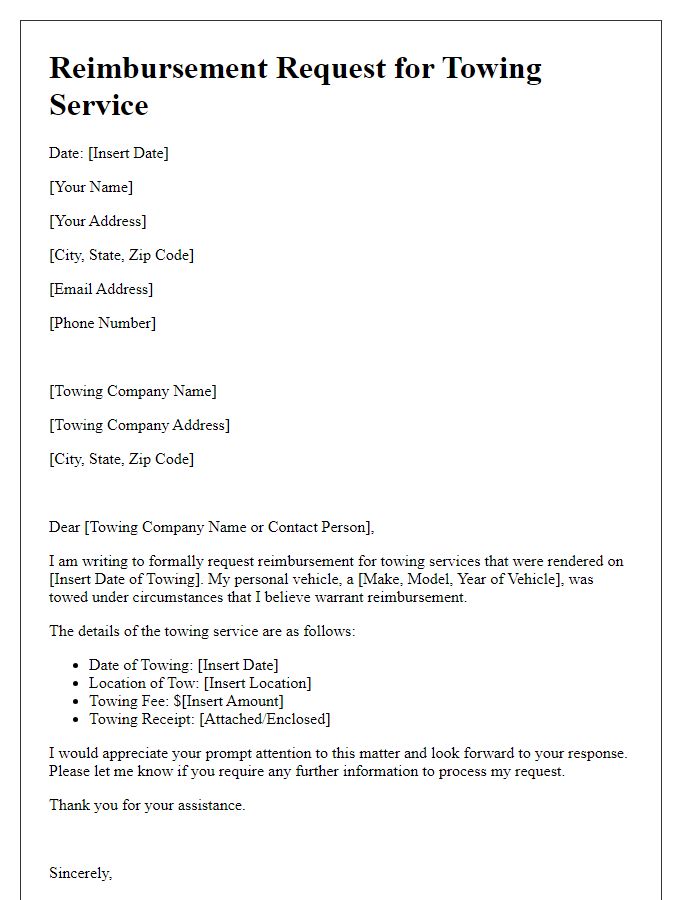
Letter template of towing service reimbursement claim for business vehicle.
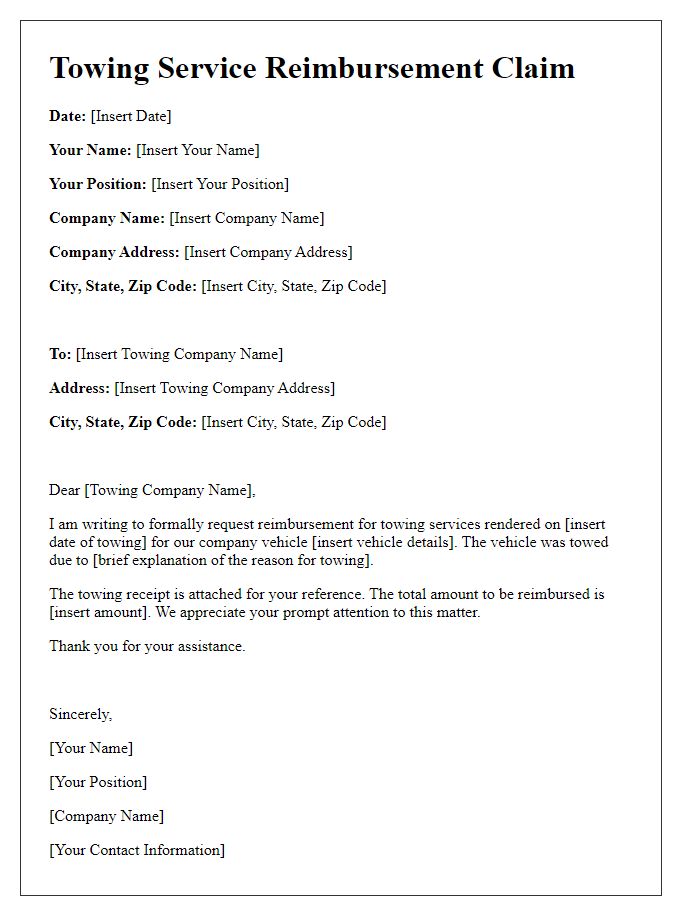
Letter template of towing service reimbursement inquiry for insurance purposes.
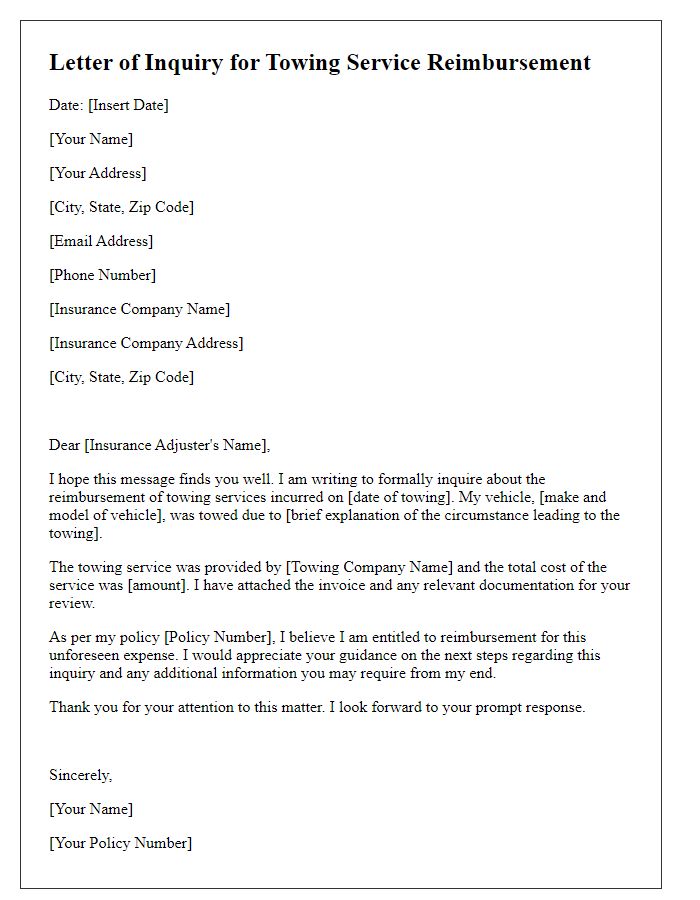
Letter template of towing service reimbursement appeal for denied claims.
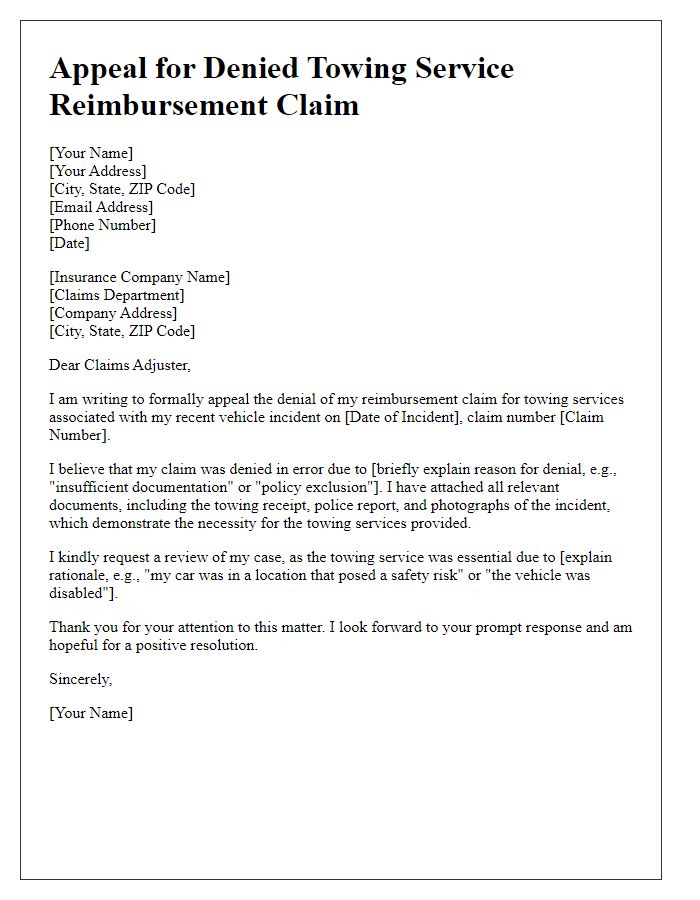
Letter template of towing service reimbursement form for roadside assistance program.
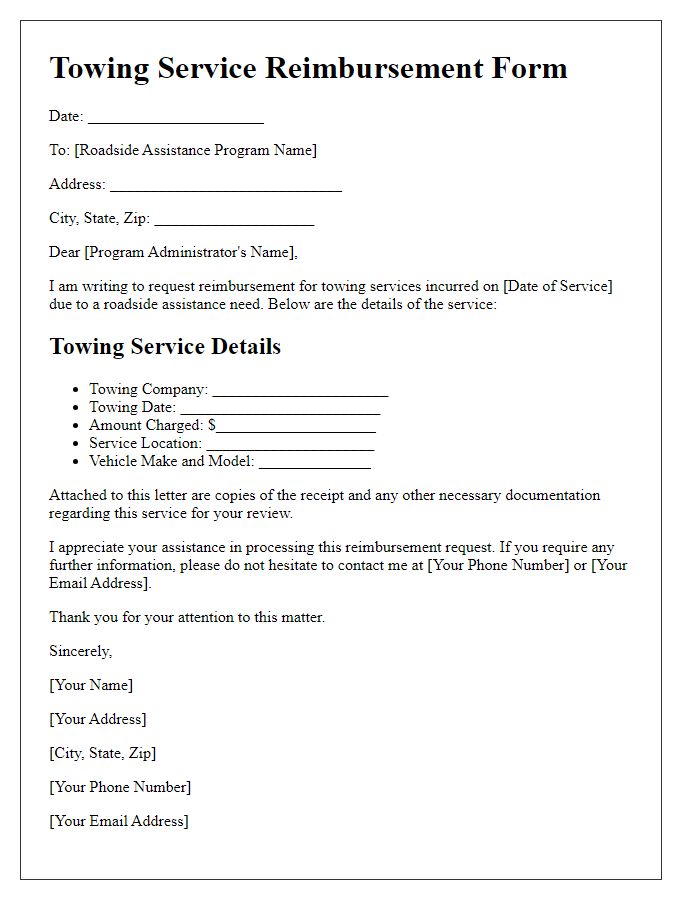
Letter template of towing service reimbursement request for accident-related towing.
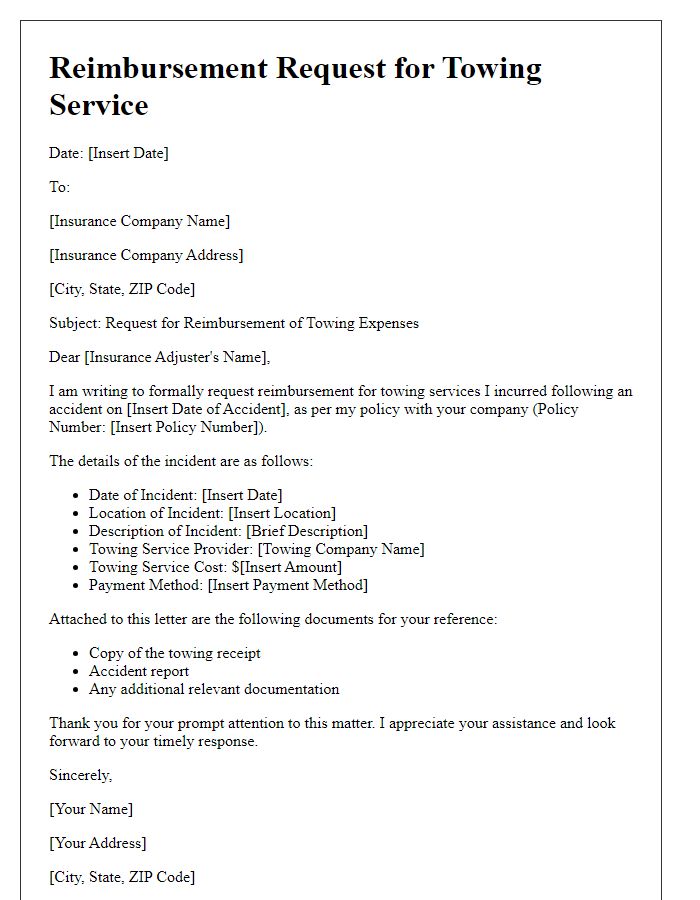
Letter template of towing service reimbursement for unauthorized towing incidents.
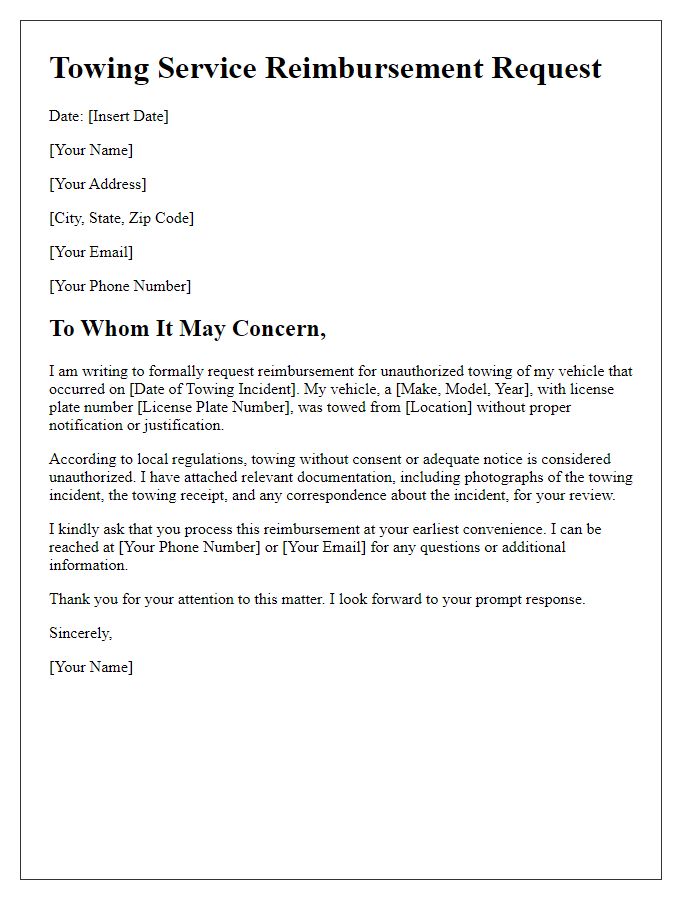
Letter template of towing service reimbursement follow-up for pending claims.
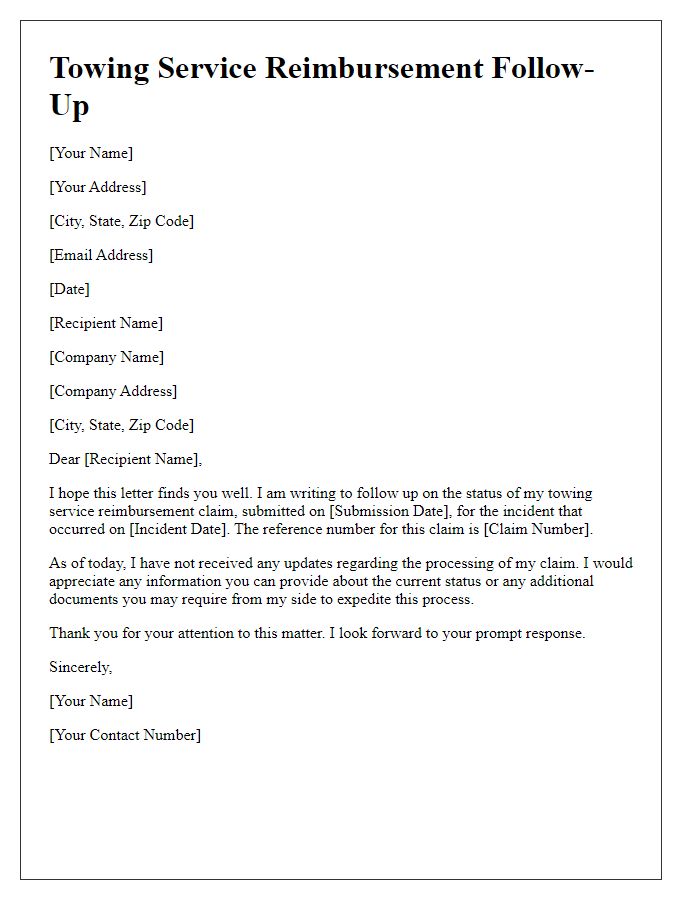
Letter template of towing service reimbursement request for long-distance towing.
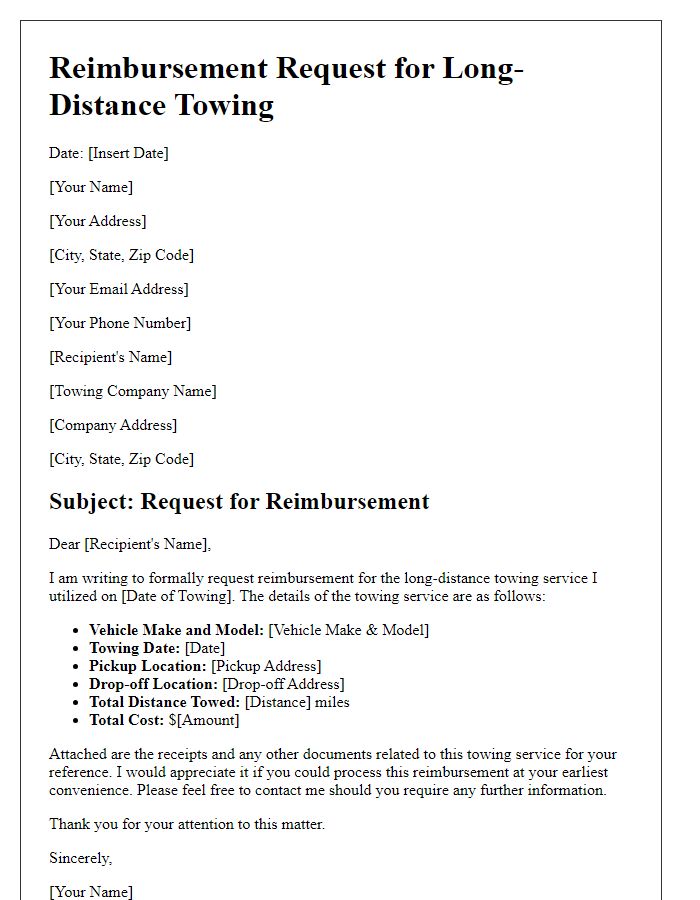

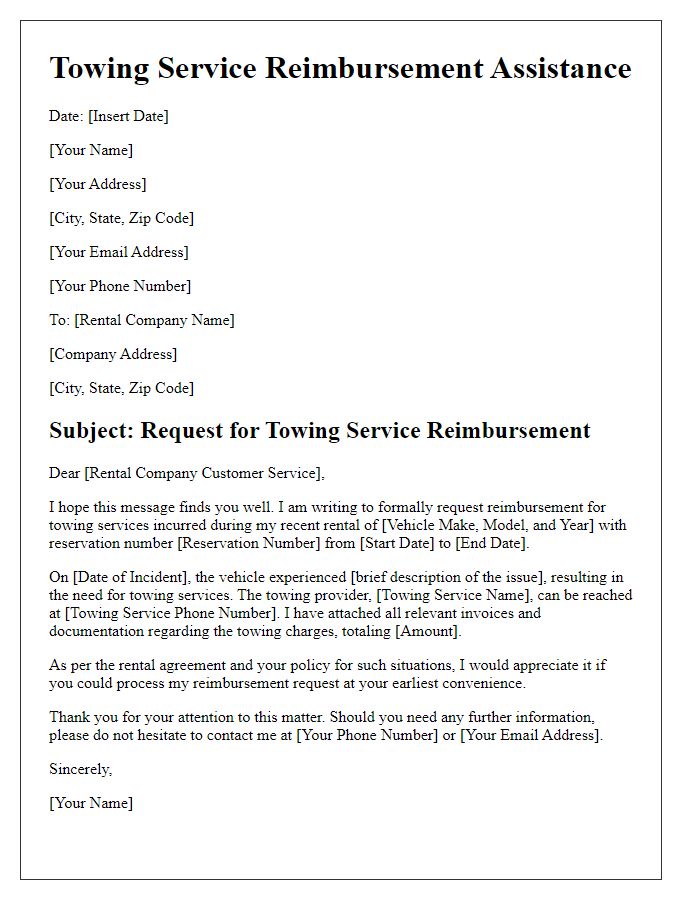

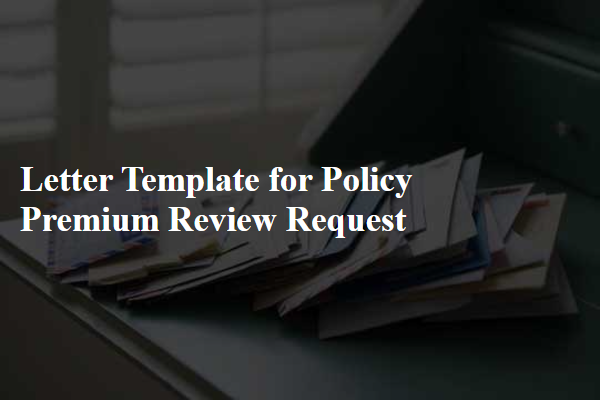
Comments